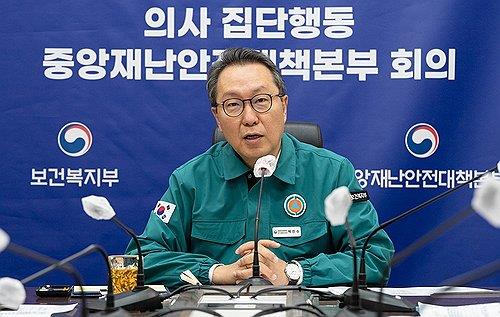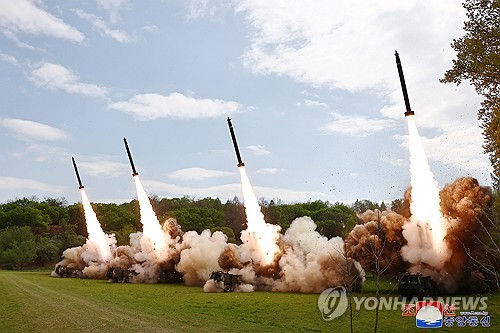(EDITORIAL from Korea Times on March 4)
Protracted downturn
Legislature should pass economic revival bills quickly
Almost all economic indicators point to sharp economic weaknesses since the beginning of the New Year.
In January, industrial production fell 1.7 percent from a month earlier, the sharpest drop in 22 months. Output in the manufacturing, mining, electricity and gas industries in January dipped a whopping 3.7 percent, the biggest fall since the 2008 global financial crisis.
Retail sales dropped 3.1 percent as a spike in cigarette prices -- from 2,500 won to 4,500 won per pack -- apparently dampened consumption. Corporate investment in facilities also sagged 7.1 percent due to sluggish spending by carmakers and machinery firms.
The nation's current account continued its surplus streak for the 35th straight month in January with $6.9 billion. But this was a typical "slump-style surplus" resulting from the fact that imports dipped at a faster rate than exports.
It's no exaggeration to say that all our economic activities -- production, investment and consumption -- are facing downside risks.
The Ministry of Strategy and Finance rules out this skepticism, citing the impact from non-economic factors such as the long Lunar New Year holiday in February, but it's true concerns are building up.
Against this gloomy backdrop, there are mounting calls for the Bank of Korea to lower the key interest rate. This argument seems to be gaining fresh momentum after China cut its key rate last week once again following the competitive monetary easing by the European Union and Japan.
But this is never an easy choice for the central bank. Apart from the ever swelling household debt, the chances of the U.S. Federal Reserve raising interest rates any time soon are preventing the Bank of Korea from opting for this policy. Even more confusing is whether the Korean economy might be mired in a liquidity trap in which lower interest rates are ineffective for driving growth.
There is no need to be entirely skeptical though, because conditions are improving. More than anything else, the "new three-low phenomenon" -- lower interest rates, oil prices and currency ― might create an environment for Korea to revitalize its faltering economy. It's quite possible to repeat the "three-low boom" of the 1980s if the global economy recovers faster than expected.
What's urgently needed then is to diagnose our economic realities accurately. Despite interest rate cuts and a string of stimulus packages, businesses have been reluctant to invest due largely to uncertain prospects. Households also remain lukewarm about spending, bound by debt obligations.
So it's critical to develop and implement more aggressive policies especially aimed at improving depressed corporate and consumer sentiments. Deregulation should also be bold and swift enough to surprise entrepreneurs who have been disappointed with the incumbent administration's incompetence over economic matters.
The ruling and opposition parties have been clashing over the 11 bills related to economic revitalization. They can bicker about anything, but their political maneuvering over economic issues will risk losing the momentum to rev up the economy. The legislature should approve the pending bills quickly.
(END)
-
 Overdue debut of Korean abstract art pioneer Yoo Young-kuk at Venice Biennale
Overdue debut of Korean abstract art pioneer Yoo Young-kuk at Venice Biennale -
 Relax, immerse yourself in scents at Venice Biennale's Korean Pavilion
Relax, immerse yourself in scents at Venice Biennale's Korean Pavilion -
 S. Korea marks 30th anniv. of Korean Pavilion at Venice Biennale with contemporary art
S. Korea marks 30th anniv. of Korean Pavilion at Venice Biennale with contemporary art -
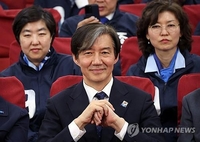 Ex-Justice Minister Cho slams Yoon's statement on crushing election defeat
Ex-Justice Minister Cho slams Yoon's statement on crushing election defeat -
 Artist Lee Bae captures ethereal Korean aesthetics at Venice Biennale
Artist Lee Bae captures ethereal Korean aesthetics at Venice Biennale
-
 Overdue debut of Korean abstract art pioneer Yoo Young-kuk at Venice Biennale
Overdue debut of Korean abstract art pioneer Yoo Young-kuk at Venice Biennale -
 Relax, immerse yourself in scents at Venice Biennale's Korean Pavilion
Relax, immerse yourself in scents at Venice Biennale's Korean Pavilion -
 Artist Lee Bae captures ethereal Korean aesthetics at Venice Biennale
Artist Lee Bae captures ethereal Korean aesthetics at Venice Biennale -
 S. Korea marks 30th anniv. of Korean Pavilion at Venice Biennale with contemporary art
S. Korea marks 30th anniv. of Korean Pavilion at Venice Biennale with contemporary art -
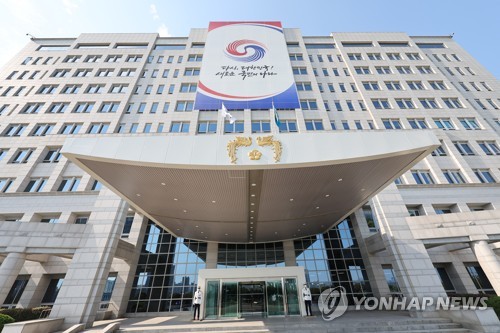 (LEAD) Presidential office denies Moon aides under consideration for PM, chief of staff
(LEAD) Presidential office denies Moon aides under consideration for PM, chief of staff
-
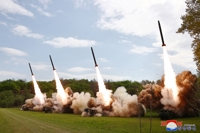 (LEAD) N. Korea says Kim guided simulated nuclear counterattack drill
(LEAD) N. Korea says Kim guided simulated nuclear counterattack drill -
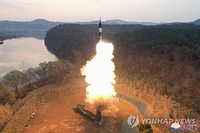 (LEAD) N. Korea fires several short-range ballistic missiles toward East Sea: JCS
(LEAD) N. Korea fires several short-range ballistic missiles toward East Sea: JCS -
 Hybe launches audit into NewJeans' label ADOR over alleged independence move
Hybe launches audit into NewJeans' label ADOR over alleged independence move -
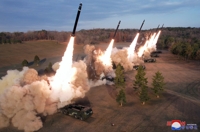 N. Korea says Kim guided simulated nuclear counterattack drills for 1st time
N. Korea says Kim guided simulated nuclear counterattack drills for 1st time -
 Hybe says spinoff attempt by subsidiary label revealed clearly
Hybe says spinoff attempt by subsidiary label revealed clearly



















